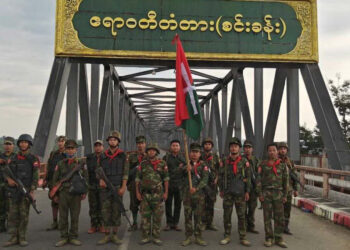SINGAPORE — Singapore will hold a general election on Sept. 11, the government announced Tuesday, in what is expected to be a tight contest for the ruling party that has dominated politics in the city-state for 50 years but is now facing growing disaffection among citizens.
The People’s Action Party, whose founder and Singapore’s first prime minister, Lee Kuan Yew, died in March at age 91, currently holds 80 out of 87 seats in Parliament.
Although that number implies massive popularity for the PAP, the party has been aided by an electoral system in which some constituencies are represented by a group of four to six lawmakers, boosting the winning party’s numbers.
The party usually fields groups led by senior, popular members of Parliament. The system has helped the PAP maintain a commanding majority, even though it received just 60 percent of all votes in the 2011 general election, in its worst electoral performance. It has lost two by-elections since then.
The decline in popularity results from growing resentment over political restrictions, an influx of foreigners and a high cost of living.
For the younger generation, Singapore’s economic success “does not have that much resonance compared with their parents or grandparents,” said Eugene Tan, an associate professor of law at Singapore Management University.
“They are less enamored of a one-party dominant system and are inclined to more political diversity and contestation. The results will signal whether we are incrementally moving away from a one-party dominant system,” he said.
The virtual one-party dominance was led by Lee, who is widely credited with setting the country on the path of economic success and was lauded at the nation’s 50th birthday celebrations on Aug. 9 for his achievements.
Lee’s son, current Prime Minister Lee Hsien Loong, recounted at the rally the country’s progress in the last 50 years and urged Singaporeans to think about the next 50.
“If you are proud of what we have achieved together, if you support what we want to do ahead, the future that we are building, then please support me, please support my team,” he said.
“We have to do it together, so that we can keep Singapore special for many years to come. Another 50 years. And Singapore has to stay special because if we are just a dull little spot on the map, a smudge, we are going to count for nothing. We have to be a shining red dot,” he added.
On election day, 16 areas in Singapore will be contested in groups, while 13 others will be contested individually, amounting to a total of 89 seats.
There are around 2.46 million eligible voters, up from 2.35 million in 2011, with an increased number of voters born post-independence.
The opposition Workers’ Party currently holds the other seven seats. It rose in popularity, particularly among the younger generation, after campaigning on the back of providing credible voices to keep the PAP in check.
In the 2011 election, the party snatched the five-member ward of Aljunied in Eastern Singapore, ousting a PAP team led by a former foreign minister.

















